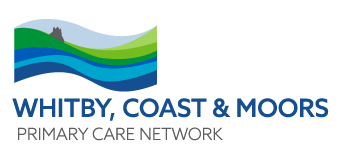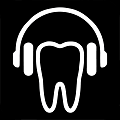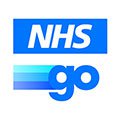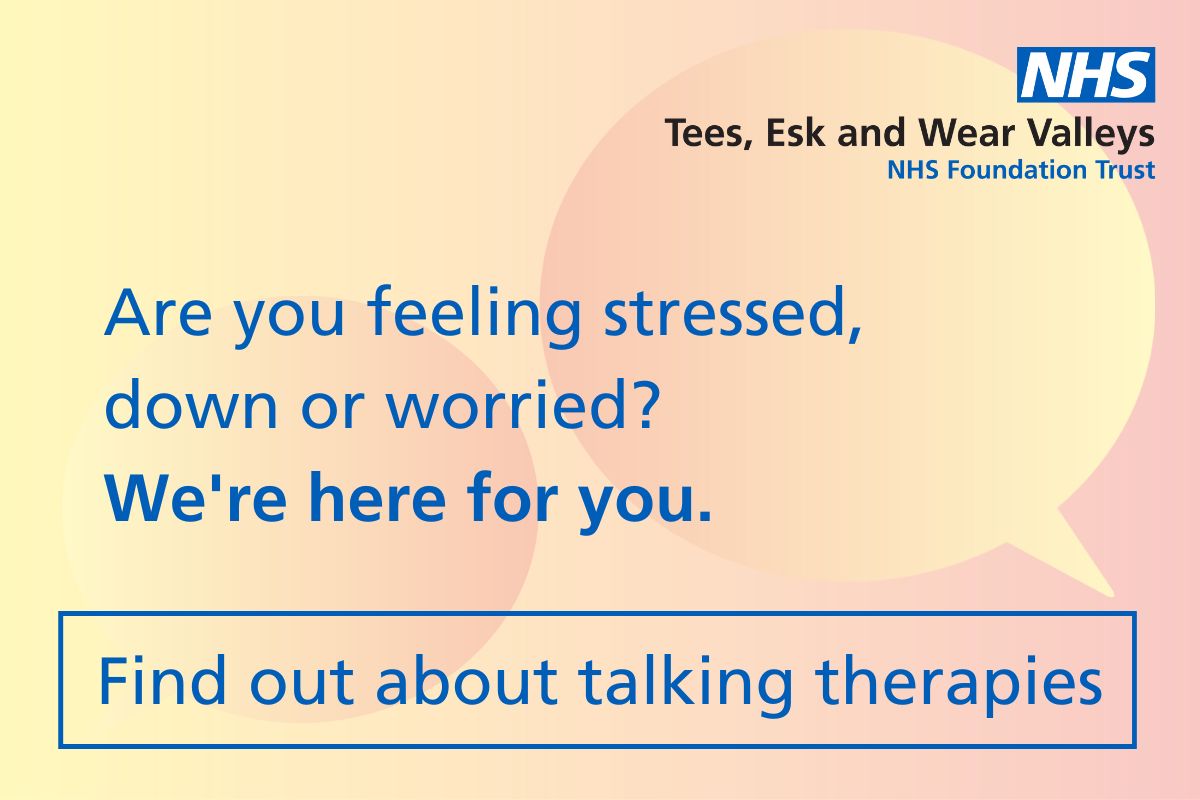NHS Health A–Z
The NHS website has a wealth of information and advice about health conditions, symptoms, medicines, finding local services, etc.
Health A to Z
Your complete guide to conditions, symptoms and treatments, including what to do and when to get help.
Medicines A–Z
Find out how your medicine works, how and when to take it, possible side effects and answers to your common questions.
Local services
GP Practices
| Danby Surgery | Briar Hill, Danby, Whitby, YO21 2PA | 01287 660739 |
| Egton Surgery | Egton, Whitby, YO21 1TX | 01947 895356 |
| Sleights and Sandsend Medical Practice | Churchfield Surgery, Iburndale Lane, Sleights, Whitby, YO22 5DP | 01947 810466 |
| Staithes Surgery | Seaton Crescent, Staithes, Saltburn, TS13 5AY | 01947 840480 |
| Whitby Group Practice | Spring Vale Medical Centre, Whitby, YO21 1SD | 01947 820888 |
Pharmacies
| Boots | 64 Baxtergate, Whitby, YO21 1BL | 01947 602219 |
| Day Lewis PLC | 9 Mount Farm Close, Whitby, YO22 4HJ | 01947 603087 |
| Day Lewis PLC | 4 The Parade, White Point Road, Whitby, YO21 3JP | 01947 602184 |
| Spring Vale Pharmacy | Spring Vale Medical Centre Rievaulx Road, Whitby, YO21 1SD | 01947 600995 |
Dentists
| North Yorkshire Dental Care | Whitby Hospital, Springhill Whitby, YO21 1DP | 01947 824248 |
| Havelock Dental Practice | 2 Havelock Place, Whitby, YO21 3ER | 01947 602040 |
| Station Road Dental Practice | Station Road, Robin Hoods Bay, Whitby, YO22 4RA | 01947 880328 |
Hospitals
| Darlington Memorial Hospital | Hollyhurst Road, Darlington, DL3 6HX | 01325 380100 |
| Friarage Hospital | Northallerton, DL6 1JG | 01609 779911 |
| James Cook University Hospital | Marton Road, Middlesbrough, TS4 3BW | 01642 850850 |
| Harrogate District Hospital | Lancaster Park Road, Harrogate, HG2 7SX | 01423 885959 |
| Scarborough Hospital | Woodlands Drive, Scarborough, YO12 6QL | 01723 368111 |
| The York Hospital | Wigginton Road, York, YO31 8HE | 01904 631 313 |
| Whitby Hospital | Springhill, Whitby, YO21 1EE | 01947 899200 |
Hospices
| Saint Catherine’s Hospice and Home | Saint Catherine’s Hospice, Throxenby Lane, Scarborough, North Yorkshire YO12 5RE |
| St Theresa’s Hospice | The woodlands, Woodland Road, Darlington, DL3 7UA |
| Teeside Hospice | 1 Northgate, Linthorpe, Middlesbrough, TS5 5NW |
Community link workers
A community link worker (CLW) works with your GP practice and is part of the practice team. They will help you access services to improve your health and wellbeing. Services might include community groups in your area, advice about money and benefits, coping as a career, parenting, looking after your own health, benefits, health and housing. The CLW can also put you in touch with services that can help you talk through your worries or problems such as isolation and loneliness or difficulty with relationships.
Social Care
North Yorkshire County Council runs many services including education (schools and youth services), social services, highways, fire and rescue services, libraries, waste disposal, consumer services and planning. The council works closely with the NHS through the Health and Wellbeing Board to improve public health and integrate health and social care services.
Find out more
Living Well Team
North Yorkshire County Council
Citizens Advice
14 Skinner Street, Whitby, YO21 3AJ
Main reception: 01723 368710
Telephone Advice Line: 03444 111 444
Heathwatch
If you use GPs and hospitals, dentists, pharmacies, care homes, or other support services, heathwatch want to hear about your experiences. Heathwatch have the power to make sure NHS leaders and other decision-makers listen to your feedback and improve standards of care.
Transport links
For more information and some helpful details about patient transport visit the South Tees Hospitals NHS Foundation Trust website or the North Yorkshire CCG website.
Our local CCG
Hambleton, Richmondshire and Whitby CCG is the local NHS organisation that plans and pays for most of the health services in Whitby. This includes GPs, hospitals and mental health services, as well as community services such as district nurses, health visitors and podiatrists.
Voluntary sector
Coast & Vale Community Action
Telephone: 01723 362205
Find out more
Our local GP Federation
Heartbeat Alliance is an alliance of the 21 GP practices across Hambleton, Richmondshire and Whitby, focusing on prevention, public health, and helping our patients to take greater control of their care. The Alliance works closely with the CCG and our other healthcare partners.
Carers
Caring for someone can be very difficult and many people find that they need extra help with the care they provide.
Have a look at the NHS guide to support and benefits for carers.
Scarborough and Ryedale Carers’ Resource
Scarborough and Ryedale carers’ resource is made up of a team of experienced, professional and friendly staff providing practical and emotional support to all carers in the Scarborough, Whitby and Ryedale areas.
Their purpose is to make sure that carers are recognised, empowered and supported.
Call: 01723 850 155
Monday to Friday, 9am to 8pm and weekends, 11am to 4pm
Email: staff@carersresource.net
Carers Direct – for carers
Call: 0300 123 1053
Monday to Friday, 9am to 8pm and weekends, 11am to 4pm
Ask if you need a translator
Carers UK – for carers
Call: 0800 808 7777
Monday and Tuesday, 10am to 4pm
Family action – support for parents and carers
Call: 0808 802 0222
Text: 07537 404 282
Monday to Friday, 6pm to 10pm and weekends, 10am to 1pm
Email: NDPSS@family-action.org.uk
If you are a carer please let your practice know so we are able to offer you extra support.
Stop smoking
Want to quit?
Talk to your GP, contact your local NHS stop-smoking services or call the NHS Smoking Helpline on 0800 022 4332 (7am to 11pm)
GPs are delighted to help people who have decided to quit smoking. About 40% of smokers will die from a smoking-related condition, so they know that stopping is one change that will make a big difference to your life.
Patients will see health benefits within days, such as improved taste and smell, while important benefits, such as lower risks of heart attack, stroke, lung cancer and improvements in breathing will happen in the first year or two.
Your GP will probably have been chasing you to stop smoking if you have high blood pressure, diabetes, circulation problems or history of stroke, heart attack, angina, asthma or chronic lung disorders.
There are excellent local NHS stop-smoking services. These NHS services are very good at tailoring treatment to your lifestyle habits. With medication and the support of these services, you’re four times more likely to give up successfully.
Addiction services
Alcohol and drugs
Help, advice and support related to alcohol or drug use. Alcoholism and drug abuse are treatable.
Our GP practices are working in conjunction with North Yorkshire Horizons to deliver a number of recovery services. More information about these services can be found on the North Yorkshire Partnership website.
North Yorkshire Horizons is a service offering a range of free, confidential and non-judgemental services for individuals and their families whose lives are affected by drugs or alcohol across North Yorkshire. Anyone can make a referral, including individuals, family members and professionals. You can access the service by calling 01723 330730 (9am to 8pm, Monday to Friday) or by email on info@nyhorizons.org.uk.
Compass REACH is a service that delivers health and wellbeing interventions to children and young people aged 9 – 19 (and up to 25 for those with special educational needs or disabilities) who live in North Yorkshire. It is the specialist young people’s drug and alcohol treatment provider for those young people who have been screened as having moderate or high levels of need with regard to substance misuse/alcohol. You can speak to someone from Compass REACH by calling 01609 777662 or on our freephone number 08000 087452 or email NYRBS@compass-uk.org.
NHS – drinking and alcohol includes information and support about alcohol abuse and addiction and links to support services for those with alcohol problems and their families, including detoxification and rehabilitation.
NHS – drug addiction is a guide to different types of drug treatment and what they involve.
FRANK the drugs helpline offers information and advice to anyone concerned about drugs use. You can call the 0300 123 6600 helpline number 24 hours a day, 365 days a year to speak to a trained advisor in confidence. The advice is free. You can also contact FRANK via instant messenger between 2pm – 6pm and email frank@talktofrank.com.
Adfam are a national organisation offering support for families affected by drugs and alcohol
Health conditions
Age related macular degeneration
Age-related macular degeneration (AMD) is a painless eye condition that causes you to lose central vision, usually in both eyes.
The NHS website has information on living with AMD including when to seek medical advice, treating the condition and reducing the risk of developing AMD.
Alzheimers
Dementia is a progressive neurological disease which affects multiplebrain functions, including memory. The exact cause of Alzheimer’s disease is unknown, although a number of things are thought to increase the risk of developing the condition.
These include:
- increasing age
- a family history of the condition
- previous severe head injuries
- lifestyle factors and conditions associated with cardiovascular disease
More information and resources about Alzheimer’s are available from the NHS website.
Asthma
Asthma is a common lung condition that causes occasional breathing difficulties. It affects people of all ages and often starts in childhood, although it can also appear for the first time in adults. The main symptoms are:
- wheezing (a whistling sound when breathing)
- breathlessness
- a tight chest – which may feel like a band is tightening around it
- coughing
The NHS website has information and advice about living with Asthma including monitoring, breathing techniques, flying and financial support.
Chronic Kidney Disease (CKD)
Chronic kidney disease (CKD) is a long term condition where the kidneys don’t work as well as they should. It’s a common condition often associated with getting older.
The NHS website has information on living with CKD with CKD including medication, diet, exercise, vaccinations, support groups and more.
COPD
Chronic obstructive pulmonary disease (COPD) is the name for a group of lung conditions that cause breathing difficulties, mainly affecting middle-aged or older adults who smoke. It includes:
- emphysema
- chronic bronchitis – long-term
- inflammation of the airways
The NHS website has information and advice about living with COPD including monitoring, breathing techniques, flying, financial support and end of life care.
Dementia
Dementia is a syndrome (a group of related symptoms) associated with an ongoing decline of brain functioning. This may include problems with:
- memory loss
- thinking speed
- mental sharpness and quickness
- language
- understanding
- judgement
- mood
- movement
- difficulties carrying out daily activities
Dementia choices on the NHS website has a wealth of information and advice about dementia.
Diabetes
Diabetes is a lifelong condition that causes a person’s blood sugar level to become too high.
There are two main types of diabetes:
- type 1 diabetes – where the body’s immune system attacks and destroys the cells that produce insulin
- type 2 diabetes – where the body does not produce enough insulin, or the body’s cells do not react to insulin
The NHS website has information and advice about living with diabetes:
Eczema
Atopic eczema (atopic dermatitis) is the most common form of eczema, a condition that causes the skin to become itchy, red, dry and cracked.
Atopic eczema is more common in children, often developing before their first birthday. However, it may also develop for the first time in adults. It’s usually a long-term (chronic) condition, although it can improve significantly, or even clear completely, in some children as they get older.
Visit the NHS website for information and advice about living with eczema including symptoms, when to seek medical advice and causes.
Heart failure
Heart failure means that the heart is unable to pump blood around the body properly. It usually occurs because the heart has become too weak or stiff. Heart failure doesn’t mean your heart has stopped working – it just needs some support to help it work better. It can occur at any age, but is most common in older people.
Find out more from the NHS website about living with heart failure including looking after your health and wellbeing, cardiac rehabilitation, monitoring, travel, support, etc.
Migraine
A migraine is usually a moderate or severe headache, felt as a throbbing pain on one side of the head. Many people also have symptoms such as nausea, vomiting and increased sensitivity to light or sound.
There are several types of migraine, including:
- migraine with aura – where there are are specific warning signs just before the
- migraine begins, such as seeing flashing lights
- migraine without aura – the most common type, where the migraine occurs without the specific warning signs
- migraine aura without headache, also known as silent migraine – where an aura or other migraine symptoms are experienced, but a headache doesn’t develop
Find out more from the NHS website about migraine.
Osteoarthritis and osteoporosis
Osteoarthritis is a condition that causes joints to become painful and stiff. It’s the most common type of arthritis in the UK.
Find out more from the NHS website about living with osteoarthritis including living healthily, medications and regular reviews.
Osteoporosis is a condition that weakens bones, making them fragile and more likely to break. It develops slowly over several years and is often only diagnosed when a minor fall or sudden impact causes a bone fracture.
Find out more from the NHS website about living with osteoporosis including diet and exercise, recovering from a broken bone and coping with pain.
Psoriasis
Psoriasis is a skin condition that causes red, flaky, crust patches of skin covered with silvery scales. These patches normally appear on your elbows, knees, scalp and lower back, but can appear anywhere on your body. Most people are only affected with small patches. In some cases, the patches can be itchy or sore.
The severity of psoriasis varies greatly from person to person. For some people it’s just a minor irritation, but for others it can have a major impact on their quality of life. Psoriasis is a long-lasting (chronic) disease that usually involves periods when you have no symptoms or mild symptoms, followed by periods when symptoms are more severe.
Find out more from the NHS website about living with psoriasis.
Rheumatoid arthritis
Rheumatoid arthritis is a long-term condition that causes pain, swelling and stiffness in the joints. The symptoms usually affect the hands, feet and wrists. There may be periods where symptoms become worse, known as flare-ups or flares. A flare can be difficult to predict, but with treatment it’s possible to decrease the number of flares and minimise or prevent long-term damage to the joints.
Some people with rheumatoid arthritis also experience problems in other parts of the body, or more general symptoms such as tiredness and weight loss.
Find out more from the NHS website about living with rheumatoid arthritis including medication, diet and exercise, self-management and support services.
Stroke
A stroke is a serious life-threatening medical condition that occurs when the blood supply to part of the brain is cut off. Strokes are a medical emergency and urgent treatment is essential. Effective treatment of stroke can prevent long-term disability and save lives.
Find out more from the NHS website about stroke including recovering from a stroke, preventing stroke and caring for someone who has had a stroke.
Health screening
Screening Saves Lives – information about the five national health screening programmes for AAA (abdominal aortic aneurysm), bowel, breast, cervical, and NHS Health Checks.
Just got your screening letter and have questions? We know that understanding more about screening makes people feel better about going. Here you can find out what your screening is looking for, and what it involves.
Living well
NHS guide to major food groups and a healthy, balanced diet.
Check your BMI using the NHS healthy weight calculator and find out if you’re a healthy weight.
NHS programmes, workouts and tips to get you moving and improve your fitness and wellbeing.
NHS guide on how to sleep well and the common lifestyle factors that are making you tired.
NHS practical advice to help you feel mentally and emotionally better.
Find out the health benefits of reducing your alcohol intake and get tips on cutting down.
NHS information about sexual health, including contraception and STIs.
NHS practical information and advice for keeping your body in tip-top health.
Learn about the benefits of quitting smoking, including better health and increased fertility.
Mental Health Information Pack
There are a wide range of self-help resources available in a variety of different formats our Mental Health Information Pack provides examples of resources you may find helpful. The details of some local and national support organisations are also listed.
Children’s health
Your NHS guide to parenting in the early years
Whether your child is a newborn, a toddler or a pre-schooler, this Birth to five guide is for you. It has 150 pages of NHS-accredited information, videos and interactive tools to help you through the parenting process.
They answer all your questions, from how to soothe a crying baby to how to prepare your child for school. Learn how to spot the signs of serious illness, how to cope if an accident happens, and how to check your child’s development.
And they haven’t forgotten about you: as a parent or carer, your wellbeing is crucial too. The guide covers all you need to know about your health after having a baby, as well as your rights, benefits and NHS services.
Child Immunisations
One of the most important things that a parent can do for their child is to make sure that they have all their routine childhood vaccinations. It’s the most effective way of keeping them protected against infectious diseases.
Ideally, children should have their jabs at the right age to protect them as early as possible and minimise the risk of infection.
Eating disorders: advice for parents
You can find out more information on the signs of eating disorders here.
If your child has been diagnosed with an eating disorder, click here for information on what you can do to help.
North Yorkshire County Council
If you need help with finding local childcare:
- Email: fis.information@northyorks.gov.uk
- Call: 01609 533483
Child health apps
All apps on this website have been assessed against a range of NHS standards and can be downloaded here via the App Store or Google Play.
Baby and Child First Aid
BlueIce
BlueIce is an evidenced-based app to help young people manage their emotions and reduce urges to self-harm.
It includes a mood diary, a toolbox of evidence-based techniques to reduce distress and automatic routing to emergency numbers if urges to harm continue.
Integrated family delivered neonatal care (IFDC)
The IFDC app helps parents of premature babies take an active role in their newborn’s treatment in an intensive care unit.
Using the app’s educational information, parents can better understand what’s happening to their baby, chart things like growth and feeding progress, and keep a diary of the key stages throughout the experience.
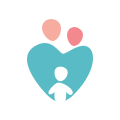
Mental health
Mental health
Your GP should be your first port of call for mental health problems.
However, if you need to discuss your mental health out of normal surgery hours, you can call the North Yorkshire Mental Health Helpline on 0333 0000309.
The helpline is a confidential and anonymous service available to anyone registered with a North Yorkshire GP. It provides a listening ear, emotional support, signposting and referral into other services for individuals and the carers of people experiencing mental distress.
One in four
It’s easy to think that mental health issues don’t concern us, but in fact a quarter of us will have problems with our mental wellbeing at some time in our lives.
Mental health problems are equally common in men and women, but the types of problems differ. Women are one-and-a-half times more likely to be affected by anxiety and depression, while men suffer more from substance abuse (one in eight men is dependent on alcohol) and anti-social personality disorders. Men are also more prone to suicide: British men are three times more likely than British women to die as a result of suicide.
If you’re worried about your mental health, or if someone in your life is affected, there are plenty of ways to get help. Find out more about mental health support.
You can also contact mental health charities such as Sane and the Mental Health Foundation.
Mental health crisis line
Freephone: 0800 051 6171
Tees, Esk and Wear Valleys NHS Foundation Trust
The crisis line is available for people of all ages to call when in mental distress. The line is open 24 hours a day, seven days a week, and callers are offered a series of options to divert them to their relevant local crisis service.
Find out more about what to do in a mental health emergency.
IAPT North Yorkshire – Self Referral
Significant events like bereavement, unemployment, relationship breakdown, traumatic events or even stress at work can lead to difficulties requiring help and support. Problems with low mood and anxiety can develop and make it difficult for us to cope with life’s daily demands.
The service provides a range of therapies for people in North Yorkshire aged 17 and over who may be experiencing the following difficulties:
- Depression
- Anxiety and worry
- Health anxiety
- Social phobia
- Specific phobias
- Panic disorder
- Post-traumatic stress disorder (PTSD)
- Obsessive-compulsive disorder (OCD)
To make sure that the IAPT service is right for you, you will need to complete a self-referral form.
The North Yorkshire IAPT service is not an emergency service.
Contraception and sexual health
Contraception is free for most people in the UK. With 15 methods to choose from, you’ll find one that suits you.
Contraceptive methods allow you to choose when and if you want to have a baby, but they don’t protect you from sexually transmitted infections (STIs). Condoms help to protect against STIs and pregnancy, so whatever other method of contraception you’re using to prevent pregnancy, use condoms as well to protect your and your partner’s health.
Where to get it
Contraceptive services are free and confidential, including to people under 16 as long as they are mature enough to understand the information and decisions involved. There are strict guidelines to for care professionals who work with people under 16.
You can get contraception free from:
- most GP surgeries (talk to your GP or practice nurse),
- community contraceptive clinics,
- some genitourinary medicine (GUM) clinics,
- sexual health clinics (these offer contraceptive and STI testing services), and
- some young people’s services (call 0800 567123).
Contraception and menopause
Women who have sex with men and don’t want to get pregnant need to keep on using contraception until they haven’t had a period for more than 12 months (menopause).
This is because periods can become irregular before they stop entirely, and pregnancy can still occur during this time.
Sexual health services
Many of these places also offer information, testing and treatment for STIs. If you’ve been exposed to the risk of pregnancy, you’re also at risk of catching an STI.
Before you make an appointment, make sure you’re as informed as possible about the contraceptive options available. People’s choice of contraception may vary over time, depending on their lifestyle and circumstances.
The methods of contraception
There are lots of methods to choose from, so don’t be put off if the first thing you use isn’t quite right for you; you can try another. You can read about each of the different methods of contraception by visiting these pages:
- Caps
- Combined pill
- Condoms (female)
- Condoms (male)
- Contraceptive implant
- Contraceptive injection
- Contraceptive patch
- Diaphragms
- Intrauterine device (IUD)
- Intrauterine system (IUS)
- Natural family planning
- Progesterone-only pill
- Vaginal ring
There are two permanent methods of contraception:
To find your nearest contraception clinic you can use the NHS service search. Enter your postcode, click ‘search’, then click ‘contraception’.
In addition to your chosen method of contraception, you need to use condoms to prevent STIs. Always buy condoms that have the CE mark on the packet. This means that they’ve been tested to the high European safety standards. Condoms that don’t have the CE mark won’t meet these standards, so don’t use them.
Seasonal top tips
Seasonal top tips
SPRING
Spring is springing, the sheep are lambing and the hedgerows are greening up; it’s time to make a couple of health commitments.
Stop smoking – If your New Year’s resolution to quit smoking lasted only until 2nd January, March’s No Smoking Day is a great time to try again. Giving up cigarettes is one of the hardest things you may ever have to do, but the right support can make all the difference. Ask at your GP practice or pharmacy for details of your local stop smoking group. Your GP will be able to advise on nicotine replacement options too.
Look forward to your holidays – With Spring bank looming and summer holidays in view, if you’re going abroad, now is the perfect time to check which vaccinations you need. Travelling in Europe? Check your European Health Insurance Card (EHIC) is still valid, as it entitles you to reduced cost or free healthcare in EU member countries. If it has run out, or you’ve never had one, it’s free, and you can apply for it online.
Get active – With the weather warming up and days getting longer, now’s the time to get active. Just getting out and about in our beautiful countryside or for a walk on the beach can give you countless benefits. Reduced stress, better sleep, feeling fitter – what’s not to like? So make the most of the spring weather – especially with our changeable climate – and go for regular walks, visit your local leisure centre or release your inner Wiggo by getting on your bike.
SUMMER
Heatwave – It’s rare for our weather to get really hot, which is why it can be more dangerous if a heatwave does strike, simply because we’re not used to it. The key risks in hot weather are dehydration, overheating, heat exhaustion and heatstroke, which is a potential killer. The very young, the elderly and the seriously ill are particularly at risk, and hot weather can make heart and breathing problems worse. Keep cool by wearing loose clothing, having cool baths or showers, and staying in the coolest room in the house. Drink plenty of cold fluids, but avoid alcohol. Check on any vulnerable friends or neighbours, and seek medical help if symptoms such as breathlessness, chest pain, confusion, weakness, dizziness or cramps get worse or don’t go away.
Fun in the sun – It’s the holiday season, and we all know the drill when it comes to sun protection, yet many of us will still get caught out, both abroad and here at home. Sunburn can be unpleasant and very sore and can increase your chances of developing serious health problems, such as skin cancer, later in life. Use at least SPF15 suncream, avoid the sun during the hottest part of the day (11am – 3pm) and cover up!
Hayfever – Summer is no joke for hay fever sufferers. Before you stock up on antihistamines, have a chat with your pharmacist – they will be able to advise you on the right combination of products and self-care to combat your hayfever. If your symptoms are so bad that they are interfering with your daily life despite taking antihistmines, see your GP.
Food safety – It’s important to cook food thoroughly at a barbecue to avoid food poisoning. Food poisoning is usually mild, and most people get better within a week. But sometimes it can be more severe, even deadly, so it’s important to take the risks seriously. Children, older people and those with weakened immune systems are particularly vulnerable to food poisoning. The two main risk factors to cooking on the barbecue are, undercooked meat and spreading germs from raw meat onto food that’s ready to eat. Remember that meat is safe to eat only when it is piping hot in the centre, there is no pink meat visible and juices are clear – and remember to wash your hands when handling food.
AUTUMN
East your fill – Autumn is a great time of year to eat healthily. Fruit and vegetables are in abundance and it’s easy to whip up a quick soup, some roasted veg or a fruit crumble – you’ll soon be having your five portions of fruit and vegetables a day without realising it. September can often bring lovely weather, so get outside and go blackberrying. If you pick enough you can freeze them to keep you in blackberry and apple pie all winter!
Keeping warm – Keeping well during the winter months is underpinned by keeping warm. Now is the time, before the cold weather sets in, to look into local affordable warmth initiatives and to check if you’re eligible for cold weather payments. The Affordable Warmth scheme website for details of free boilers and free cavity wall insulation.
Fight flu – Get the jab It’s flu jab time! If you’re over 65, or pregnant, or have a long term condition or weakened immune system, your GP practice will invite you to come for a flu vaccination. An annual flu vaccine nasal spray is also now offered to healthy children aged two, three and four years old, and to children in school years one and two. Please have the vaccination: although most people feel rotten for about a week and then get over it, flu can have serious side effects for people at risk. If you’re a carer for someone with a long term condition, or an elderly relative, it’s important you are vaccinated too. Anyone can have a flu jab; if you’re not in one of the groups mentioned above you can still pay for a vaccination at your GP practice or in your pharmacy.
WINTER
Christmas is coming …and with it several bank holidays. Make sure your stock up on your repeat prescriptions in plenty of time. It’s also worth making sure you have in some basic medicines such as painkillers and indigestion treatments – click here for advice on a well-stocked medicine cabinet.
New Years Resolutions – So, 1 January has come around again, and it’s time to combat the excesses of the festive season. Don’t put pressure on yourself by making a long list of resolutions you won’t keep. Focus on one only: stop smoking, get a bit more active, eat more healthily or give up the alcohol for Dry January. Whatever you choose, there’s plenty of advice and support groups across our district. And before you know it, Spring will be here again!
Help stop the spread – ‘Winter vomiting’, ‘d and v’, ‘the lurgi’ – whatever you call it, one thing’s for sure… you’d rather not catch it! As winter comes and friends and colleagues start to look a bit green around the gills, it’s a fairly safe bet that viral gastroenteritis is the culprit. This describes diarrhoea and vomiting illnesses caused by a number of highly infectious viruses. Although the symptoms tend to last for only a few days, it’s very unpleasant. Large outbreaks can affect hospitals, schools and nursing homes, so if you have had a bug, it is very important that you don’t go back to school or visit people in hospitals/care homes until you’ve been symptom-free for 48 hours. And the simplest way to prevent the spread of these unpleasant viruses? Wash your hands! Wards and care homes now have anti-bacterial gel at their entrances, so make sure you use it as you arrive and leave.
Vaccinations
Keeping up to date with immunisations
It’s important that vaccines are given on time for the best protection, but if you or your child missed a vaccine, contact your GP to catch up.
Some vaccines are only available on the NHS for groups of people who need extra protection.
Travel vaccinations
If you’re planning to travel outside the UK, you may need to be vaccinated against some of the serious diseases found in other parts of the world.
Vaccinations are available to protect you against infections such as yellow fever, typhoid and hepatitis A.
You should check if your GP practice is signed up to provide free NHS vaccinations for travel, as not all GP practices are.
Some travel vaccinations are freely available on the NHS. Others are only available privately.
If the GP practice does not provide NHS vaccinations for travel, you can try a:
- private travel vaccination clinic
- pharmacy offering travel healthcare services
Links on this website are being provided as a convenience and for informational purposes only. They do not constitute an endorsement or an approval by Whitby, Coast and Moors PCN. Whitby, Coast and Moors PCN bears no responsibility for the accuracy, legality or content of the external site or for that of subsequent links.
